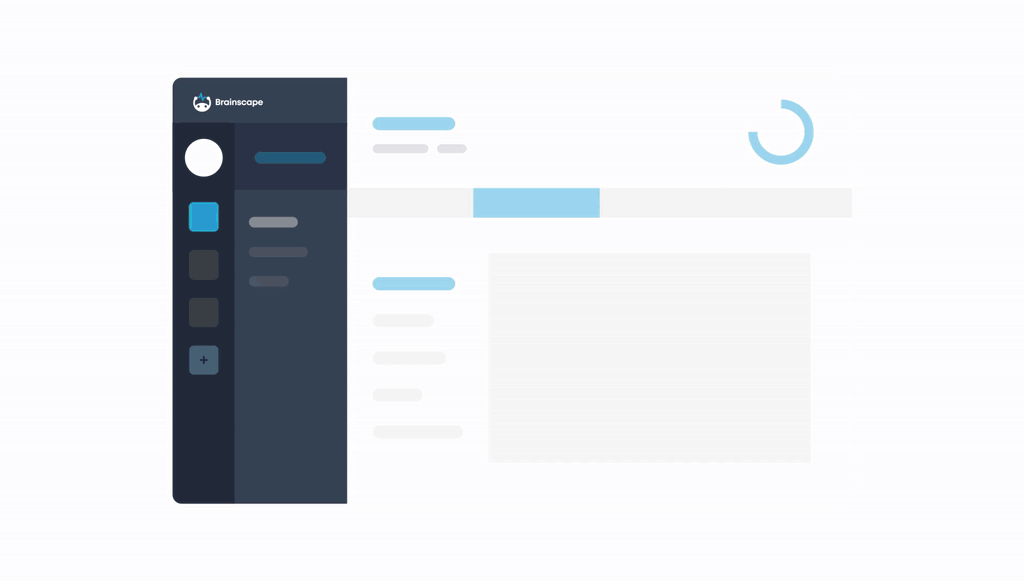what are the best ways to learn a language

There are many means to learn a new language: taking a class, speaking with your friends from Madrid, hiring a Chinese tutor, or just watching sometime French movies with subtitles. Just there's another method that volition accept your learning to the next level: reading!
Reading is one of the all-time ways to learn a linguistic communication, fifty-fifty from very early in your learning journey. We at Brainscape take spent a ton of time learning how you can all-time master a foreign linguistic communication using reading as part of an overall suite of activities.
We spent years building our own "certified" strange language learning curricula—starting with our adaptive French flashcards and Spanish flashcards. We not just adult a groundbreaking method for learning languages faster using spaced repetition, merely also a model for what an ideal language learning journey should include.
[Notice our complete toolkit to learn a language online.]
For example, we've already discussed how useful information technology is to practice speaking a foreign language. It'south a much improve practice activity than only watching TV/movies, since the former provides the learner with an adaptable footstep, a stronger incentive to pay attention, and a greater adventure of receiving corrective feedback.
Only learning a language isn't only nearly speaking.
In this post, nosotros will explain why reading is the best way to learn a language and will requite you lot 6 tips for how to involve reading in your language learning.
The importance of reading a foreign language
Reading in a foreign language helps us become more comfortable with the words and grammatical rules that enable us to express our own thoughts, just like reading in one'due south native language. Seeing the text of new words and concepts visually helps to reinforce our memory of them, while having the ability to cease, remember, or look up words in a dictionary allows for more individualized pace of mental assimilation.
Reading at fifty-fifty a slow pace also exposes us to more than sentences per minute than the average movie or Goggle box bear witness. (Just think of all the pauses, transitions, and action scenes where characters are not speaking.) This is exactly the reason why heavy readers of merely English tend to speak more articulately than boilerplate English speakers, despite theoretically having had the same number of years of exposure to the linguistic communication.
Existence exposed to a larger "brain feed" of vocabulary and grammer simply trains you to use your language improve in your own spoken communication. So, without further ado, let'south dive into the tips for for finding and using skillful foreign-language reading materials!
6 Tips for reading in a strange linguistic communication efficiently

Tip 1. Start basic and minor
Children's books are great practice for beginners, as are software programs with brusque sentences or passages that let yous to heed to accompanying audio. (Effort "Charlotte'southward Web" in Spanish, or the BBC's "Acquire French" series.) Don't effort to dive into a novel or newspaper too early, since it can be discouraging (or might take too long to constantly wait up every word you encounter!).
Tip 2. Choose material you've already read in your language
Even if you last read something xv years agone, the fact that you at least know the gist of it will help you tremendously to pick upwardly context clues and implicitly larn new vocabulary and grammatical constructions. Otherwise, if you get lost in a new story in a foreign language, it is difficult to recover. For example, if yous've already read Harry Potter, try reading it again in Mandarin.

Tip 3. Read books with their accompanying audiobooks
Reading just a single book while listening to the accompanying sound—even if you don't understand everything completely—will dramatically improve your "ear preparation" and habituate you to the full general speed and cadency of a native speaker. Alternatively, using an audiobook solitary (if you are a beginner) risks completely missing sure words that you might have otherwise recognized. So, effort reading a book with their accompanying audio book to make certain you don't miss any vocab or grammer structures.
Watching Tv set or movies with closed-captioning in the native language tin sometimes be a decent substitute as well, only be careful: almost captions neglect to mimic the spoken lines word-for-word, which tin can result in a disruptive audiovisual disconnect.
And fifty-fifty in cases where the text and audio are in sync (particularly in slowly-spoken documentaries), recall that the utilize of pauses and other audio-free visual effects reduces the words-per-infinitesimal exposure of screen versus impress. If you desire the well-nigh efficient word-feed for your brain, audiobooks paired with their original text provide the best practice possible.
Tip 4. Read content aligned to your level
Speaking of vocabulary and grammer, the departure between reading in a foreign language versus your native language is, naturally, that you lot began reading your native linguistic communication once you were already speaking it fluently. Merely if you're a beginner in a strange linguistic communication you don't quite have that luxury. The challenge is therefore finding foreign-linguistic communication reading materials that are commensurate with your level of vocabulary and grammar.
- If you lot're at a beginner level, read social media posts, short, easy manufactures, or children'south books.
- If you lot're at an intermediate level, read books yous've already read and short news articles.
- If you lot're at an advanced level, read books, articles, or other native texts that interest you.
You should aim for texts that are challenging but not overwhelming.
Tip 5. Use an adaptive spaced repetition tool like Brainscape
Reading is great but you lot can't just pick up a book and expect to larn everything you demand to know from it. Most language learning practices are best used in combination with others, similar the right foreign linguistic communication app.
Brainscape is best language app out there (science says so!). Information technology's a flexible, adaptive flashcard app that helps yous learn vocab and grammar twice as chop-chop as you would doing traditional exercises. It uses spaced repetition, which is a language learning algorithm that shows your most difficult concepts more oft than the easier ones, thereby optimizing your learning process. The faster you learn the grammar and vocab, the more reading you'll be able to sympathize!

Brainscape'due south certified foreign linguistic communication programs expand your vocabulary and grammer cognition through thousands of digital flashcards that are deliberately ordered from the "most critical" concepts to the "nearly mundane", so that you're using your language-learning time about efficiently.
Tip six. Make digital flashcards for every new word you find
Flashcards aren't just handy for learning before your start reading materials, but also during your reading. When yous come up beyond a new and unfamiliar phrase or word, you can brand your own flashcards using Brainscape. Once you add a flashcard to your deck, information technology automatically become part of your linguistic communication learning process. This is way more than effective that reading a new give-and-take, looking it upwardly, and forgetting mere minutes later.

Create your own language learning journey
Reading is definitely one of the all-time ways to learn a linguistic communication. But like we said earlier, reading on its own will not go you to a fluent level. Instead, we've discovered that a variety of practices and tools are best used together to really accelerate your learning.
If you check out our complete toolkit for learning a foreign linguistic communication online, you will learn how to construct a journey that works for you. Perchance you need a tutor and some well-chosen books and movies. Or perhaps you're more than adventurous and will travel to your chosen country to practice speaking with natives.
And don't forget, even the best-constructed journey will fail if you don't have the correct motivation to learn a foreign language.
Good luck!
Source: https://www.brainscape.com/academy/reading-foreign-languages-learn-study/
Enviar um comentário for "what are the best ways to learn a language"